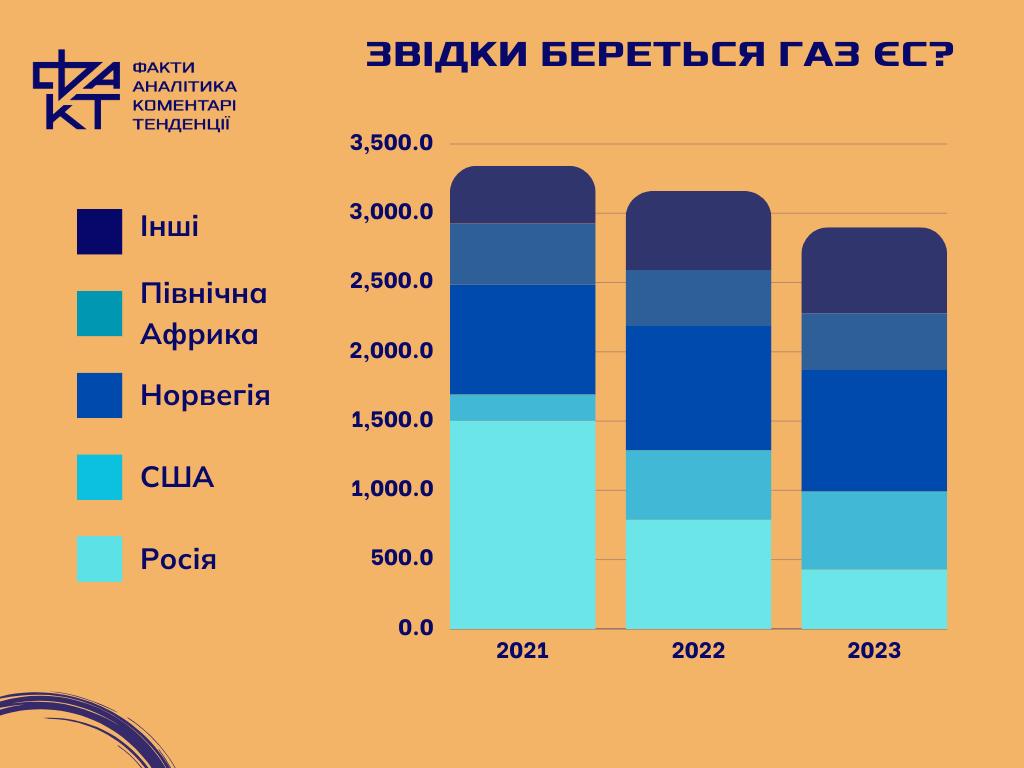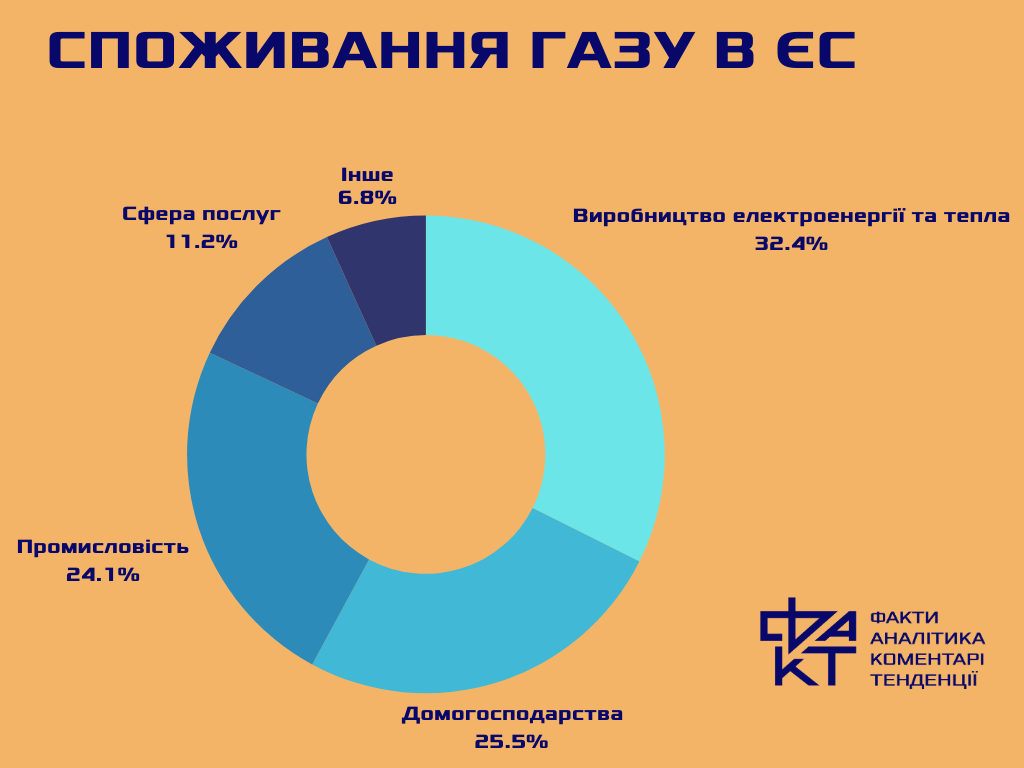Europe without Russian gas: what does the completion of the transit agreement through Ukraine mean for the EU?

The European Union has long sought to get rid of gas dependence on Russia. A lot has been done for this: last year, the share of Russian pipeline gas in EU gas imports fell to 8% from over 40% in 2021. This year, the EU countries came very close to the limit beyond which the complete release from Russian gas can begin. The contract for its supply through Ukraine expires in December 2024. And President Zelenskyi’s statements testify to the rejection of its extension.
Europe divided by the gas issue
Despite the general anti-Russian rhetoric, the gas issue is causing quite a debate in Europe, since the transit of Russian gas through Ukraine is crucial for the energy supply of many European countries. There are those who claim to get out of gas dependence. And there are those who choose pragmatism and look for ways to continue supplies of Russian gas not openly, but in a “disguised way”.
Austria, in particular, has been trying to get rid of these supplies for a long time, but is still bound by a contract with Russia’s Gazprom. Eastern European countries are also sensitive to gas supplies.
German newspaper Handelsblatt reports, that the federal government and the European Commission are negotiating with countries that may be affected by the gas failure. The publication notes: if Ukraine is adamant, it may have serious consequences for the energy security of these countries.
Edition Frankfurter Rundschau пише: “Since the beginning of the war in Ukraine, Russia’s revenues from the sale of gas have fallen sharply – so much so that Gazprom had to admit huge losses. And Ukraine is determined to increase these losses”.


Will Putin be able to pressure the EU with Russian gas?
On the eve of the expiration of the gas agreement, European countries are developing alternative scenarios.
Austria, the Russian share in all gas imports in December 2023 reached a critical mark of 98%, is trying to expand its import opportunities through Italy and Germany. Austrian Energy Minister Leonora Gewessler calls for the country’s gas independence and seeks to oblige gas suppliers to reduce the Russian share as much as possible. Austria benefits from the fact that Germany and Italy have already largely cut themselves off from Russian pipeline gas. Both countries receive raw materials mainly in the form of liquefied natural gas. In addition, gas comes from Norway via Germany. While both countries were once supplied with Russian gas via Austria, capacity is now available to deliver gas to Austria via Germany and Italy.
The situation with Hungary is a bit more complicated, but the country can still buy Russian gas through Turkish Stream, so it has an alternative. There is no alternative in Slovakia. That is why Prime Minister Robert Fizo has already offered Ukraine to sign a transport contract with Russia, which would then be signed by European companies, which would then actually buy Russian gas at the Russian-Ukrainian border, and then conclude a contract with Ukraine for gas transportation.
To remain a transit country
This is the status that Ukraine strives to preserve, while at the same time solving the ambitious issue of helping its Western neighbors in ensuring energy security. Therefore, our country is currently negotiating the supply of natural gas from Azerbaijan to the European Union.
Azerbaijan, in turn, is ready to increase gas exports to Europe, but has not yet concluded long-term agreements to invest in further production. Until the capacity is increased, Azerbaijan plans to exchange gas with Russia, which is natural for the oil and gas markets. Therefore, the benefit of the Russian Federation from such gas transportation can only be short-term.
EU officials have already presented Azerbaijan with a scheme for transporting gas to Europe through the territory of Ukraine. “Azerbaijan has approved the transit of gas to the EU through our country,” he said Azerbaijani edition of GlobalInfo.
Therefore, European countries should intensify their efforts to diversify gas supply sources and develop alternative scenarios in order to minimize dependence on Russian gas. Ukraine, in turn, is also interested in finding alternative sources of gas to realize the capacities of its GTS.





